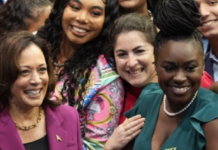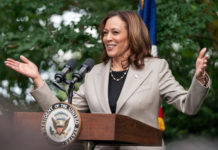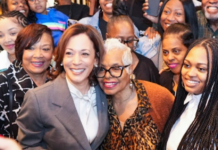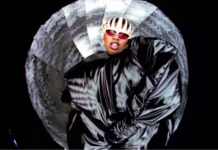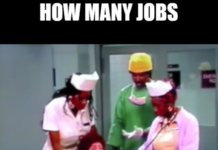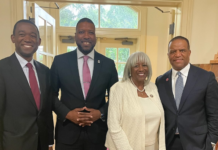By Gerren Keith Gaynor/Originally published by thegrio
President Joe Biden announced Monday his highly anticipated Plan B for student loan debt cancellation nearly a year after the U.S. Supreme Court struck down his original program. The White House’s announcement asserts that the new plan will provide “significant relief” for Black and Latino borrowers.
“We know there are big racial disparities in the student loan program, and students of color are more likely to borrow larger amounts and are more likely to struggle to repay [their loans],” U.S. Under Secretary of Education James Kvaal told theGrio. Additionally, he said, the program would have a “positive impact on the racial wealth gap.
“Most Black borrowers owe more 10 years out of school than they originally borrowed because of interest outstripping payments,” Kvaal explained. “We need to bring relief to everyone who’s struggling with their student loans.”
What is Biden’s Plan B?
The announcement includes five methods to “fix” the federal student loan program, including providing debt cancellation for borrowers who owe more today than they did when they entered repayment, who have owed for 20 years or more and who are experiencing financial hardship.
The Biden-Harris administration says the plan is designed to provide meaningful relief to Black borrowers who rely more heavily on student debt than white families and who take longer to pay off loans. Combined with the federal government’s existing programs that have canceled $140 billion in student loan debt for four million borrowers, the administration anticipates that more than 30 million Americans will benefit from some form of relief.
Borrowers who owe more than their original balance when they began repayment due to interest will be eligible for federal student loan forgiveness, which Kvaal says is about 25 million borrowers. This will be especially meaningful for Black borrowers who are more likely to experience an increase in their balances, according to the Brookings Institution.
As for the debt relief program for those experiencing hardships, Kvaal said the Biden-Harris administration would consider health care costs or other “unusual family expenses.”
“We have a number of programs to cut payments or offer loan forgiveness for people who are struggling to afford their loans for any number of reasons,” he said. “But there are still a lot of people who slip in between these programs and are struggling on their loans. The hardship is intended to give us the flexibility to help additional people who really need it.”
Other plans announced Monday include debt relief eligibility for borrowers who attended institutions that “failed accountability measures” or “failed to provide students with sufficient financial value.” Those are educational institutions that the administration determines offered programs that fail to lead to gainful employment. Some institutions have been penalized for being predatory student lenders. Another tenet of Plan B includes making efforts to ensure those who are eligible for existing programs, but have not yet applied, can do so.
When will student debt relief be issued?
Though Plan B has been highly anticipated, particularly among Black borrowers, it will not be rolled out for several months. The next phase of the federal rule-making process will be allowing the public to provide comments on the proposed programs before they become policy.
The legal framework of the new program is under the Higher Education Act, as opposed previous program under the HEROES Act, which was authored as a response to the economic hardships COVID-19 produced and rejected by the Supreme Court in June 2023.
Kvaal told theGrio that the administration’s goal is to “finalize these plans” and “begin delivering relief to students” by the fall, likely just before Election Day on Nov. 5.
Reactions to Biden’s student debt relief program
Though borrowers will have to wait a little bit longer, student loan advocates are praising Biden’s new plan.
U.S. Rep. Ayanna Pressley, D-Mass., said in a statement that Plan B is a “powerful testament to the borrowers across the nation who fought for economic justice and continued to make the case for student debt, despite obstruction from the Supreme Court and Republicans.
“While we will continue to press for continued action that meets the scale of the crisis, this is a historic day and today’s announcement sets us on a path for over 30 million borrowers and their families to receive life-changing student debt relief this year,” the statement continued.
Wisdom Cole, national director of the NAACP youth and college division, told theGrio the president’s new plan is a “step in the right direction.”
Cole, one of the lead negotiators for civil rights organizations during the rule-making process, said the administration “landed at a really great place.”
“The elimination of runaway interest and those who had balances greater than when they originally borrowed is definitely a key win,” said Cole. “The elimination of that will actually provide the opportunity for folks to become homeowners [and] to become business owners.”
The student debt relief advocate said Biden canceled “the most amount of student debt in U.S. history” because advocates and community leaders organized and “made this a priority issue.”
“This is a phenomenal investment opportunity into our community,” he proclaimed.
What didn’t make it into Biden’s student debt relief plan?
Still, Cole acknowledged that the civil rights community pushed for the government to go further. For example, a proposal to create more debt relief pathways for incarcerated Americans is not included in Plan B.
“There’s some areas that we are yet to explore,” he said. “Some folks in that situation, they’re never going to be able to pay off that debt. A lot of the proposals that we discussed and submitted to the Department of Education was giving folks an opportunity to really enter into this economic system.”
Cole said the federal government must continue to “do more” to resolve “the issues within higher education,” particularly how much the cost of higher education has increased over the decades. “If we truly want to solve this problem, we have to start having conversations about free college. We have to start talking about college affordability,” he said. “This is a good continual conversation.”
Concerning the November election, Cole said, “For young people, they want to make sure that their politicians are actually being true to their word because we have the receipts.”
He added, “This is actually an opportunity to see promises that were made kept.”


